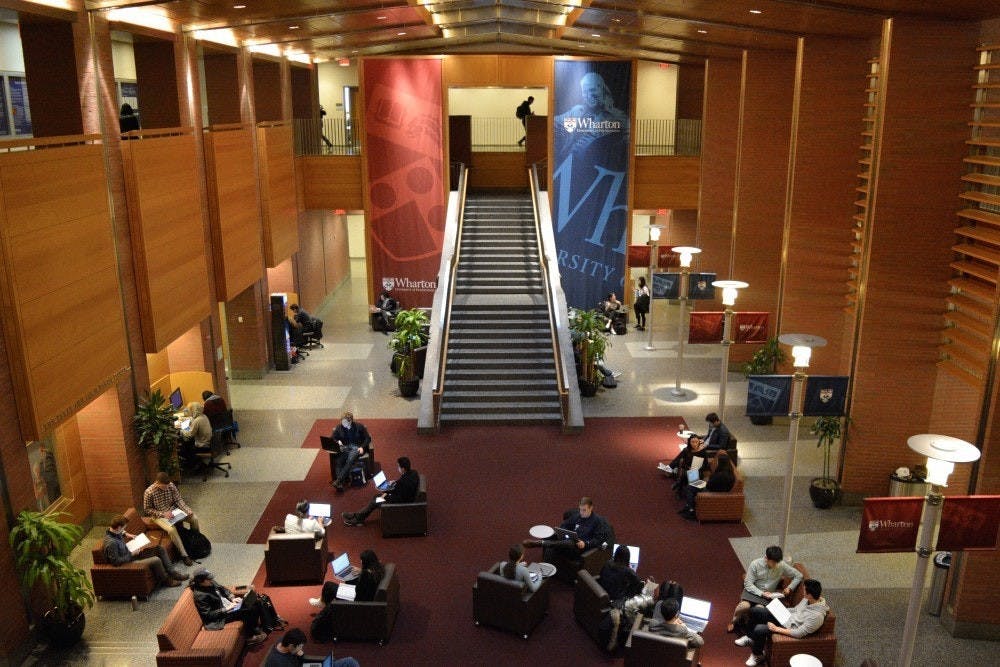Almost no Penn student is a stranger to the all-nighter. Whether it’s because class assignments happen to be due all in the same week, back-to-back midterms, or because it’s in the middle of a busy season for a club or sport. For better or for worse, late-night and all-night studying are integral parts of surviving Penn. Given how frequently Penn students find themselves burning the midnight oil, there is a dearth of suitable study places for students to go to after the clock hits twelve. Due to how common it is for Penn students to study so late, the University ought to provide more 24-hour study spaces.
Although currently there are a few locations that are open at all hours for students to utilize, the options from which students can choose are hardly appealing: after 2:00 AM, students can migrate to either DRL or a study space within one of the residential college houses. DRL is far removed from most of the undergraduate population on campus, and is about as appealing to study in as an old abandoned middle school. The study spaces within the college houses, while appealing, are only easily accessible late at night by students who live within the building, entirely excluding the 44% of undergrads who choose to live off campus.
The University’s limited offerings of late-night study spaces makes it more difficult for groups working on projects to get together and work on them for as long as they have to, and doesn't cater to the student’s wide variety of tastes for the area in which they study in. Some students prefer the stone-faced silence of Fisher Fine Arts while others prefer the cushier Arch Cafe.
The University could solve this problem almost instantaneously by allowing Van Pelt and Huntsman Hall to be open 24 hours, year-round. The University saves very little by closing these buildings down for part of the night, and the main reason cited for closing these buildings is to promote student wellness and encourage them to get more sleep. And yet, Penn students still have the same amount of work, and still have the same drive to stay up late and cram just that extra little bit or put the finishing touches on a paper. Is staying up late studying and working on a paper the healthiest choice? Depending on the situation, perhaps not. But closing these buildings early and does little to address the hypercompetitive culture.

The renovations to the basement of Van Pelt Library will upgrade the furniture, lighting, and electrical system of the space. (File Photo)
If students are going to stay up late working regardless of the operating hours, why not open up more spaces for them to use so they can at least be comfortable and at ease? The fact that areas like Huntsman and Van Pelt become 24-hour study spaces during finals season shows that such measures are not only feasible, but culturally acceptable — there’s absolutely no difference between a student staying up late to study for a final and a student staying up late to study for a midterm.
Not only that, but the limited number of hours that these buildings are open in the early morning (from 5:00 a.m. - 8:30 a.m., for example) is disadvantageous to students who want or need to get up early and subsequently want to do some work before their first lecture or recitation of the day. For example, plenty of ROTC students at Penn wake up at insane hours for their daily training, and then afterwards have almost nowhere to go back and study, except their rooms.
By leaving more buildings open for longer hours or designating new 24-hour study spaces altogether, Penn could make sure that students who have heavy course and club loads have the space that they need to get their work done however late or early their schedules demand. The move would cost the University relatively little, so the only major hurdle is a concern for students’ wellness on campus. While this concern is appreciated, as students have pointed out before, restricting building access has done almost nothing to stifle the epidemic of mental illness on campus. If Penn’s culture is going to persist as hypercompetitive and pre-professional, then the least the University could do is provide students with as many resources as possible so that they can weather the storm as best they can.

JAMES MORRISON is a College freshman from Pipersville, Pa. studying English. His email address is jmorr2@sas.upenn.edu.









